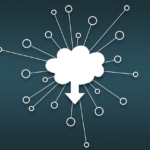How Informatica uses the cloud to empower a data-driven enterprise
Overview
Setting the stage for what ended up being the primary theme at Informatica World 2022 — Data is your platform — Informatica CEO Amit Walia walked attendees through two emerging trends: the importance of scalable infrastructure through cloud computing, and how AI and machine learning (ML) are no longer just about automating processes but also about enabling predictive intelligence. These trends, while well recognized in theory, are more challenging for businesses to put into practice, particularly due to the proliferation of data and the number of users looking to access said data, including both technical and nontechnical personas.
Informatica’s solution to data complexity is rooted in one of the company’s core values — platform centricity — but the move to essentially replace Intelligent Data Platform with IDMC, after years of innovation and a slight disruption from COVID-19, is now taking Informatica’s approach to data management and integration to new heights. With IDMC in the cloud, Informatica is better positioning itself to help clients translate data into valuable insights at a level that cannot be realized on premises.
In addition to being cloud-native, IDMC is infused with AI, addressing the other emerging trend called out by Walia — the need for AI-powered intelligence. All Informatica capabilities are built on CLAIRE, an automated metadata engine that processes 32 trillion transactions per month, and tie back into IDMC. While the ROI for AI technology is still hard to justify for many businesses, another key factor in the low adoption of the technology is that many businesses are working with complex, siloed data, which means AI models could fall short and lead to inaccuracies.
CLAIRE is designed to address a range of operational, runtime and automation use cases — from auto-scaling to anomaly detection — and acts as a wrapper around IDMC to enable fully automated data management and governance processes. By bringing the power of cloud and AI into one integrated platform, Informatica uses IDMC to help customers focus on the only thing they truly own in the cloud: their data. The result of a $1 billion, six-year investment, IDMC consists of seven core modules, with its value proposition largely stemming from its modularity and the ability to allow customers to pick and choose capabilities and services based on their industry, business and use case.
Informatica expands platform capabilities, driving additional value for its comprehensive, cloud-native solution
New innovations emphasize uniting IT and business functions to improve efficiency
With IDMC, Informatica has solidified its platform approach, but as cited by various customers, the company’s ability to continually offer new capabilities is what drives additional value, by addressing more horizontal and vertical use cases in the data life cycle. Perhaps the most notable announcement at Informatica World 2022, which seemed to garner particular excitement from product leaders and customers, was the general availability of Informatica Data Loader. Jitesh Ghai, Informatica’s chief product officer, led a demo of Data Loader, which is a free, self-service tool that ingests data from over 30 out-of-the-box systems into Google Cloud’s popular data warehouse solution, BigQuery.
As part of the demo, we saw a scenario play out where a marketing analyst needs access to more data to effectively run a campaign. The hypothetical marketing analyst then accesses the Integration module within IDMC to pull data from Marketo using a drop-down tool to access BigQuery through which data can be loaded in only a few steps. This integration could end up acting as a time-saver for large organizations and speaks to the innovative ways Informatica is getting data into the hands of line-of-business teams.
At the event, Informatica also announced INFACore, which targets more technical users, such as data scientists and engineers, allowing them to clean and manage data in a single function. As a low-code plug-in for popular frameworks, such as Jupyter notebooks, INFACore is designed to improve the productivity of the technical user, but naturally this productivity trickles up to business functions. For instance, after using INFACore to cleanse data through a single function, the data scientist can publish a clean data set to the Informatica Marketplace, where other teams within an organization can access it.
Another key innovation called out in opening talks with Ghai was ModelServe, which allows users to upload, monitor and manage ML models within their Informatica data pipelines. There are many ML models in production, but businesses are still looking for ways to scale them from an operational perspective. In talks with more than one customer at the event, the common interface within IDMC came up as a value-add when attempting to scale a data team, suggesting customers are awaiting ModelServe’s general availability as it will allow users to register and manage ML models directly within IDMC.
Informatica strengthens SaaS portfolio, building in intelligence from the data model up
While Informatica’s platform capabilities get much of the market’s attention, the company also has a broad portfolio of IDMC-enabled SaaS offerings, which play a key role in the data management journey, complementing warehousing, integration and automation. As a native service within Informatica’s Master Data Management (MDM) solution, 360 applications act as a gateway for transforming customer experience in the cloud, something we saw in action through the product demo of Supplier 360 SaaS.
Through IDMC, CLAIRE recognized a defective part from a supplier of a hypothetical company, and teams were able to use Supplier 360 SaaS to identify which customers were impacted by the faulty part and automatically notify customer service so they can launch a refund program to keep customers satisfied. Informatica also released various industry and domain extensions for its 360 applications and will continue to offer new packaged offerings available in a SaaS model, providing customers more ways to onboard and manage data.
Joining the industry cloud bandwagon, Informatica verticalizes IDMC
It is no secret that industry specialization is re-emerging as a leading trend in the cloud space, as a maturing enterprise customer base demands solutions that suit their unique IT and business processes. During the event, Informatica unveiled new IDMC customizations for financial services, healthcare and life sciences. These three offerings join IDMC for Retail in Informatica’s industry cloud portfolio to further address demand for purpose-built solutions that will limit the need for customization.
Findings from TBR’s Cloud Infrastructure & Platforms Customer Research continue to indicate that some enterprises are wary of industry cloud solutions, dismissing them as marketing ploys. Other enterprises, however, find them worth evaluating. For instance, in talks with a representative from a hedge fund, we found that the company initially chose a competing MDM solution because it specialized in asset management with its own specific data dictionary but was torn as it viewed Informatica’s MDM as ahead of the competition in terms of capabilities. We can expect Informatica to expand in other industries, including specific subverticals, with additional data models, custom user interfaces and data quality rules to appeal to these customers.
Continued integrations and go-to-market synergies with hyperscalers help Informatica maintain data neutrality
For a company that markets itself as the “Switzerland of data,” Informatica’s ability to make its offerings accessible across leading cloud platforms is critical. Partnering across the cloud landscape is no longer a differentiator, it is a necessity and something customers clearly find value in as they gravitate toward multicloud environments. During the event, Walia welcomed several partner executives both in-person and virtually to discuss new joint offerings and go-to-market synergies the company is forming with cloud service providers to deliver more choice and flexibility and for joint clients.
-
-
- The ubiquity of Microsoft’s cloud portfolio allows Informatica to provide clients a unified data architecture. Informatica and Microsoft (Nasdaq: MSFT) have a well-established relationship, which at its core is focused on migrating data warehouses to the cloud but is evolving and making Informatica relevant across the Microsoft Cloud stack, including Azure, Power Platform and 365 applications. For example, Informatica is typically well known for its integration with Azure Synapse, but the company also integrates with the Dynamics 365 SaaS data model to enable Customer 360 analytics. Expanding its presence throughout the Microsoft Cloud stack, Informatica announced MDM on Azure. With this announcement, customers can deploy MDM as a SaaS offering on Azure via the Azure Marketplace, which could appeal to the large number of Microsoft shops looking to enhance their Azure Data Lakes with a feature-rich MDM solution. Both companies also launched Informatica Data Governance with Power BI, which, as highlighted by Scott Guthrie, EVP of Cloud and AI at Microsoft, brings Informatica’s data catalog scanners to Power BI, allowing customers to have a single view of their data processes from ingestion to consumption. This offering could serve as a more strategic way for customers to modernize their analytics workloads through Azure.
- Given their respective strengths in data analytics and data management, Google Cloud and Informatica are complementary partners. The Google Cloud-Informatica relationship took a major step forward with the launch of Informatica Data Loader, which could expand client usage of BigQuery and help Google Cloud (Nasdaq: GOOGL) address a wider set of customer needs, including those outside the IT department. In TBR’s own discussions with enterprise buyers, BigQuery is often cited as a leading solution due to its ability to handle petabytes of data at a favorable price point. Walia reaffirmed this notion in discussions with two customers, ADT and Telus, both of which are migrating legacy data warehouses and/or front-end ETL (extract, transform, load) capabilities into their BigQuery instances and using IDMC for cloud-based data management.
- Oracle awards Informatica preferred partner status for data integration. Informatica and Oracle (NYSE: ORCL) struck a new partnership agreement that offers IDMC on Oracle Cloud Infrastructure (OCI). Addressing the large number of customers running legacy Oracle databases and potentially those that are also deploying on-premises Informatica products, IDMC on OCI provides customers an integrated gateway to the cloud by enabling back-end connections with Oracle Autonomous Database and Exadata Database Service and OCI Object Storage. For example, with IDMC on OCI, customers can import data from legacy Oracle E-Business Suite applications into Autonomous Database and connect to other data sources, such as Azure SQL or Amazon RedShift, through IDMC. As a preferred Oracle partner, Informatica will recommend customers use IDMC with Oracle’s cloud services. Oracle’s EVP of database server technologies, Andy Mendelsohn, walked through numerous incentives to assist customers’ cloud migrations, such as Bring Your Own License, Informatica Migration Factory and Oracle Cloud Lift Services.
-
Informatica also has close relationships with Amazon Web Services (AWS) (Nasdaq: AMZN), Snowflake (NYSE: SNOW) and Databricks, all of which are expanding their commitments to Informatica to help customers look beyond ETL and handle data in an end-to-end fashion. Given Informatica offers analytics, integration, automation, governance and management capabilities across leading clouds, naturally the company runs up against a high degree of competitive overlap with its partners, which offer similar native tooling as part of a customer’s environment.
However, in talks with customers, the general perception seems to be that the hyperscalers’ capabilities are still relatively immature and that there is also significant value in deploying a vendor-neutral platform like IDMC to avoid vendor lock-in and address the training and skill challenges typically associated with a multicloud environment. While we can expect the hyperscalers to enhance their capabilities, at the end of the day, the primary goal for AWS, Microsoft and Google Cloud is to win compute, so the benefits of partnering with Informatica to capture legacy platform-layer workloads outweigh the downsides of coopetition.
Conclusion
With IDMC, Informatica has fostered a value proposition catered to three core areas: platform-centricity, connecting IT and business ecosystems, and infrastructure agnosticism. The numerous announcements made at Informatica World 2022 show the data management company is building on these strategic pillars by better aligning with cutting-edge trends in the cloud industry, such as industry customization, out-of-the-box integrations and data democratization. With these enhancements in place, along with close partnerships across the IaaS ecosystem, Informatica is positioning itself favorably to assist clients with the large number of on-premises workloads ready to be migrated and modernized in the cloud while enabling the cloud-native enterprise to transition from digital to data-driven.




Leave a Reply
Want to join the discussion?Feel free to contribute!